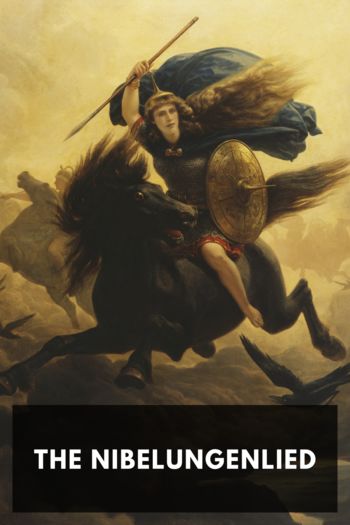The Trials of Radclyffe Hall, Diana Souhami [best sales books of all time .TXT] 📗

- Author: Diana Souhami
Book online «The Trials of Radclyffe Hall, Diana Souhami [best sales books of all time .TXT] 📗». Author Diana Souhami
Born in Barrackpore, Calcutta, Mabel had travelled as a child to Japan, North Africa and Europe. In her teens she studied music in Bruges and Dresden. Her mezzo-soprano voice proved popular at musical soirees, her rippling laugh, dark blue eyes, ‘luxuriant auburn hair’, big bust and tiny waist proved popular with men. She knew she was pretty and she expected to be indulged. Her cousin, Una Troubridge, was to say of her, ‘She accepted homage as a matter of course. She had always received it.’
Her father, George Cliffe Hatch, was Judge Advocate-General of Northern India. Her two brothers, George and Arthur, were colonels in the army. Of her two sisters, Annie remained Annie Hatch, looked after their mother, had protruding eyes and, as time passed, was short of money. Emma, the eldest, married the Honourable Edward Bourke, fifth son of Richard Mayo, Viceroy of India, who was assassinated in 1872.
Mabel married ‘dear old George’ without illusion of love. Cara was born in 1876. And George had an unmentioned love child, another daughter. A Bombay scribe wrote to him from time to time on her mother’s behalf, asking for money.
George had an unremarkable career in the Bengal civil service. He was Secretary to the Department of Revenue and Agriculture when he wooed Mabel. He feared he would not be enough for his own darling Mab, his little bird of a wife. He feared she had a roving eye: ‘I do hope that you do not think me exigent or wanting in trust in you’, he wrote soon after their engagement:
I do darling trust you as much as I love you. In fact I could not do one without the other. When, as in our case, a young girl accepts a man much older than herself the world is always ready to seize any opportunity for making cynical remarks and that is a reason for being more than ordinarily careful not to give such opportunities and probably it is this fact that makes me rather sensitive. I feel sure darling that you are perfectly loyal to me, but …
The wedding was at Christ’s Church, Simla, on 20 November 1875. On 8 November Queen Victoria’s errant son Edward, Prince of Wales had arrived on a four-month state visit to India with an entourage of less than respectable friends. It was at a cost of £100,000 to the Indian government, and more to the British treasury. The Prince’s host in Northern India, Sir John Strachey, Lieutenant-Governor of Bengal, was married to George’s sister. She congratulated Mabel for having found a kind, affectionate husband. ‘You will of course be at Agra when His Royal Highness is there, and then we shall see a good deal of each other.’
The Prince of Wales, too, saw a good deal of Mabel. She was one of the prettiest women around. ‘The Prince’s tastes are low and childish’, Lady Strachey wrote to her sister-in-law in England:
He has a perfect mania on the subject of dress … fresh orders come nearly every hour about what the suite are to wear and if a button is wrong it is at once noticed and remarked upon. His other tastes are for eating and drinking. He is at times thoroughly selfish and inconsiderate … As for his moral character, it is as bad as possible and the respectable part of the suite are always in agony lest he misbehave.
As a memento of his misbehaviour with Mabel, he gave her a portrait of himself set in an amethyst pendant. She flaunted signed framed photographs of him throughout her house. Their affair continued after his return to England and on visits to Europe. They met up at Homburg and for the races at Goodwood and Ascot. He gave her tortoiseshell combs set with diamonds, an inscribed silver gilt flask, jade ashtrays, a moonstone brooch. One year at Homburg he gave her a ring, set with a turquoise heart and tiny diamonds. It was made, he told her, from his first scarf pin. In his scarcely legible handwriting he wrote discreet letters to her alluding to the times of their afternoon trysts.
Letters from other prestigious lovers went into Mabel Batten’s locked boxes. Lord Lytton, Viceroy of India from 1876, sent poems. George benefited from Mabel’s popularity. Civil servants improved their promotion prospects when their wives had sagacious affairs. A network of nepotism linked jobs, spouses, lovers. Lytton made George his Private Secretary. He thought him incompetent but a cheap option. ‘Batten,’ he wrote to his wife Edith in 1879, ‘is the only civilian of adequate standing whose services can be secured without additional expense to the Government of India.’ Lady Lytton disliked George. ‘He had such abominable manners and often would get so cocky’, she said.
The diarist and poet Wilfrid Scawen Blunt, cousin of Mabel’s brother-in-law Edward Bourke and confidant to both Mabel and the Viceroy, suspected Lytton gave George the job to manoeuvre himself close to Mabel. ‘I warned him of the imprudence and of the opportunity it would give for evil tongues’, he wrote in his diary. Security was strict after the assassination of the previous viceroy. Guards at the court were on duty day and night. Mabel could not be smuggled in unobserved. Lytton told Blunt that to his ‘chagrin’ she ‘consoled herself’ with his aide-de-camp.
She consoled herself, too, with Blunt and told him of her love affairs





Comments (0)